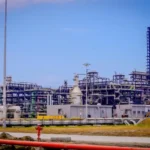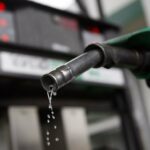A momentous event will take place next week. And the event is guaranteed to add sheen to Nigeria’s image and imbue its citizens with hope at a time of national despair. The event is the commissioning of the Dangote Refinery and Petrochemical Plant.
This good tiding is coming at the tail end of the lacklustre administration of President Muhammadu Buhari. It is also coming a year after the federal government’s concerted efforts to remove subsidy on petrol, its suspension following outrage by Nigerians and the realisation by the government that it was not judicious to withdraw the subsidy at the eve of a general election.
But lest we digress, the revalidation of Mr Aliko Dangote, last year, as Africa’s richest man, was a matter of profound joy and pride for all Nigerians and indeed members of the black race. Mr Dangote’s success is an eloquent testimony to what can be achieved if one is far-sighted, focused, ingenious and determined. His is a confirmation that fortune favours the audacious, the savvy and the self-driven. His success has certainly spurred and galvanized others. Already, not a few Nigerians point to Mr Dangote as their mentor and inspiration.
Beyond the inspiration he offers, the self-effacing Mr Dangote carries on unobtrusively. He is a quintessential uniter of Nigeria and the African continent. His businesses are spread across the country, thus reinforcing our unity. And his cement companies are strewn all over Africa, thereby gluing the continent.
If the Forbes validation proved Mr Dangote’s mettle as Africa’s foremost businessman, the Dangote Refinery estimated at $12 billion is an idea which time has come. The refinery’s construction started in 2016. Its proposed commissioning, next week, will fill a void left by the comatose government-owned refineries in Kaduna, Warri and Port Harcourt. It is also coming at a time when Nigeria refines its crude abroad, imports the refined products and passes off the costs to its impoverished citizens.
The Dangote Refinery is a complex that combines a refinery, a petrochemical plant, a fertilizer plant and a sub-sea pipeline project. It is reputed to be the largest single-train refinery in the world. It is expected to produce 650,000 barrels per day and to directly employ 38,000 staff.
The President of the African Development Bank (AfDB), Dr Akinwumi Adesina, who visited the Dangote Refinery some 15 months ago, was simply wowed by what he saw. Permit me to quote him: “I am completely blown away…. I can’t believe what I saw…this project will reverse the huge sum the nation spends on foreign exchange.
“Aliko is quite an important and visionary business leader and for anybody to have done what I have seen here, I think that person deserves world-class kudos for that….I see a company that we will proudly call Africa’s growth accelerator company.”
According to an effusive Dr Adesina, Nigeria imports about $57 billion worth of refined petroleum products and we export $50.4 billion, thus leaving us with a balance of $7 billion. By his reckoning, the Dangote Refinery should be able to have a domestic market of $11 billion and save Nigeria $9 billion annually. The Dangote Refinery is thus a win-win for the company, for Nigeria and for the West African sub-region.
While wishing the Dangote Refinery Godspeed, a timeous and healthy return on investment to shareholders, one must observe with disquiet that Mr Dangote tends to invest in areas where he has near- or complete dominance. His ventures are thus monopolies. They determine prices for the consumer, for good or for ill.
Mr Dangote’s credentials as a nationalist and pan-Africanist are not in doubt, however. But relating to his refinery, we seem set to repeat the mistake we made when we discovered oil in Oloibiri in 1958. As soon as we were awash with petro-dollars, we abandoned agriculture and manufacturing, which are crucial to our sustenance and economic security. Our economy became mono-cultural and dependent on oil.
As Dangote Refinery comes on stream, after several postponements, one foresees an eventuality where government refineries will be abandoned to their devices. A hint of the dire consequences of depending on one company for petrol can easily be gleaned from the cement arena where Dangote Cement and BUA Cement hold sway.
Even as we celebrate the advent of the Dangote Refinery with frenzy and excitement, no official statement is forthcoming about what the Nigerian National Petroleum Company Limited (NNPCL) intends to do with our moribund refineries. Does it intend to revive them in order to compete with the Dangote Refinery? Does it intend to auction them outright as canvassed by a presidential candidate?
Come to think of it, refineries, like major manufacturing concerns, undergo Turn Around Maintenance (TAM) on an almost perennial basis. What becomes of us when the Dangote Refinery proceeds on this inevitable rite of passage? Do we go back to our old way of refining crude abroad? Has the Dangote Refinery come to terms with the profusion of electric cars and the global transition from carbons to other sources of energy?
It is a good thing that the NNPC has been transformed into a limited liability company. As opposed to the 1970s and 1980s when the NNPC was a professional juggernaut, the period from the 1990s up till now, has witnessed a marked decline in its fortunes. The corporation has become a dumping ground for the frolicking wards of the rich and connected. Whereas the Saudi-owned oil company, ARAMCO, reported a record annual profit of $161 billion in 2022, we are yet to hear of any profit declared by the NNPC Ltd.
With its commercialization, the NNPCL, like its peers such as ARAMCO, will do well to begin to look at other areas of investment in the energy ecosystem. To be relevant, it must explore the unavoidable transition from carbon emission to renewable sources of energy. To achieve these tasks, it must be galvanised by an exalted vision, imagination and the patriotic zeal of those who superintend over its affairs.
Nick Dazang is a former Director at the Independent National Electoral Commission

 Join Daily Trust WhatsApp Community For Quick Access To News and Happenings Around You.
Join Daily Trust WhatsApp Community For Quick Access To News and Happenings Around You.


